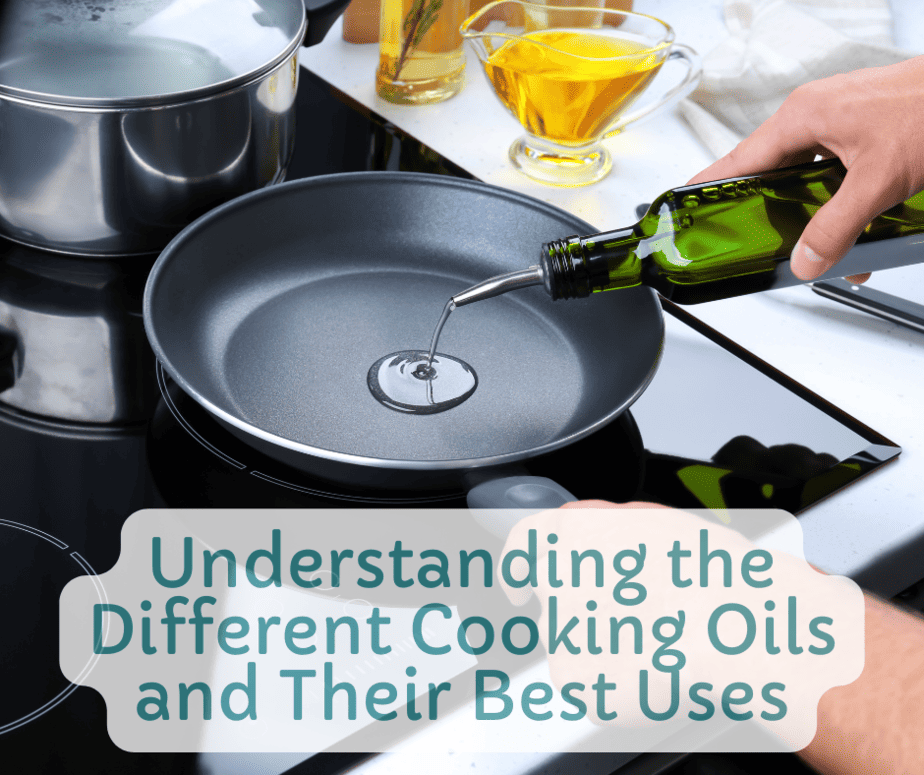Cooking oils are the cornerstone of culinary practices across the globe, each with unique properties and uses. This comprehensive guide delves into the world of cooking oils, elucidating their distinct characteristics and optimal culinary applications.

The Spectrum of Cooking Oils: An Overview
Cooking oils, derived from a variety of sources, embody a diverse array of flavors, smoking points, and nutritional profiles. This section aims to classify these oils into categories, providing a bird’ s-eye view of their culinary landscape.
Vegetable Oils: A Versatile Choice for Everyday Cooking
Vegetable oils, such as canola, soybean, and corn oil, are renowned for their versatility. These oils are characterized by their relatively high smoking points and neutral flavors, making them ideal for a variety of cooking methods, including frying, sautéing, and baking. Nutritionally, they are generally high in polyunsaturated and monounsaturated fats, contributing to a heart-healthy diet.
Olive Oil: The Heart of Mediterranean Cuisine
Olive oil, a staple in Mediterranean cooking, is celebrated for its rich, fruity flavor and health benefits. Extra-virgin olive oil, cold-pressed from the first pressing of olives, boasts a lower smoking point and is best reserved for dressings, dips, and low-heat cooking. In contrast, regular olive oil can withstand higher temperatures, making it suitable for sautéing and roasting. Find good quality olive oil at stores near you.
Coconut Oil: A Tropical Delight with Distinct Qualities
Coconut oil, with its unmistakable aroma and flavor, adds a tropical twist to dishes. It’s composed predominantly of saturated fats, which impart a solid form at room temperature. Virgin coconut oil is ideal for baking and adds a subtle coconut essence, while refined coconut oil is a better fit for frying, due to its higher smoking point and neutral taste.
Avocado Oil: A Nutrient-Rich Option for High-Heat Cooking
Avocado oil, with its high smoking point and buttery flavor, is an excellent choice for high-heat cooking like grilling and stir-frying. It’s laden with monounsaturated fats, contributing to its nutritional profile. Avocado oil is also a versatile addition to salad dressings and marinades, adding a subtle, yet distinct, flavor.
Mastering the Art of Cooking with Oil: Best Practices
Selecting the Right Oil for Cooking Techniques
Choosing the correct oil for various cooking methods is paramount. For high-heat cooking like deep-frying, oils with high smoking points such as peanut or sunflower oil are preferable. Conversely, for dressings or drizzling, oils with pronounced flavors like walnut or sesame oil are more suitable.
The Importance of Smoking Points in Cooking
The smoking point of oil, the temperature at which it starts to smoke and degrade, is a critical factor in cooking. Using an oil beyond its smoking point can impart a bitter taste to food and diminish its nutritional value. Therefore, understanding and adhering to the smoking points of oils ensures optimal flavor and health benefits.
Balancing Flavor and Nutrition in Oil Selection
While flavor is a key consideration in selecting cooking oils, their nutritional profile should not be overlooked. Oils like flaxseed and walnut oil, while not suitable for high-heat cooking, are rich in omega-3 fatty acids, making them excellent choices for cold dishes to boost nutritional value.
The Culinary Symphony of Cooking Oils
In conclusion, the world of cooking oils is a tapestry of flavors, textures, and nutritional profiles. By understanding the unique properties and best uses of different oils, one can elevate their culinary creations, striking a harmonious balance between taste, health, and cooking technique. Whether it’s the subtle art of dressing a salad or the robust process of frying, the right oil can transform the ordinary into the extraordinary.
celebsagewiki says
Thank you so much! This is very helpful!
HC says
This is a good guide. I pretty much use avocado oil for most of my cooking. I love that I don’t have to worry about high heat when roasting veggies in the oven or in a skillet.
Brett says
Yes, me too! My kids like to help cook dinner- which is great when I am working late- and it’s nice to have oils on hand they can just grab and use without worrying the temp will be too high.